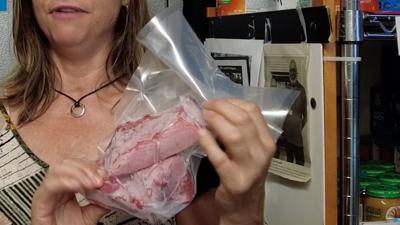OCEAN CITY, Md. - The White Marlin Open in Ocean City has been famous for decades for trophy fish and big prize money.
But contrary to what some folks might believe, the tournament is about more than just big fish and big money.
"[The Captains] have big hearts, and they're out there to have some fun and win, but they have big hearts," said Tom Dvorak of Dvorak, LLC. "Some of the fish donated the other night were just incredible."
So far, captains have donated more than three hundred pounds of fresh tuna to food pantries on the Lower Eastern Shore.
Dvorak's company. which does heavy electrical work up and down the East Coast, is paying for the processing of the fresh fish for the food pantries.
At the Diakonia Food Pantry in Ocean City, Pantry Coordinator Susan Blaney said the fish adds a lot of improvement in the nutritional quality of the food offered to those in need.
"Usually the proteins we give out are in a can, or they come a day old from Food Lion, so they have to be used very quickly," Blaney said. "This fresh fish that's coming in, there's not a lot of sodium. We'll be preparing it with our meals and we can prepare it with salt, without salt."
That allows the Pantry to not just provide better quality food, but to better cater to the medical and dietary needs of its clients, some of who manage diabetes and high blood pressure.
Catch and Carry of Ocean City is processing the fish for the food pantries. Catch and Carry specializes in portioning and packaging of freshly caught fish using flash freezing and vacuum sealing. Owner Craig Pyle said these packing techniques will allow the pantries to keep the fresh fish available for longer than other fresh foods.
"It's just like you get it out of the store, but it's months later and most of the time you can't do that," Pyle said. "Most of the time your fish will go bad two to three months the way you store it, but with our process, it'll last up to a year."
Emily Mysliwczyk, visiting Ocean City from Pittsburgh, Penn., said she knew about the White Marlin Open, but never knew about the donations to food pantries. She said it spoke well of the character of the tourney captains.
"It shows that people do care about the less fortunate and they're not greedy with what they catch," Mysliwczyk said.




